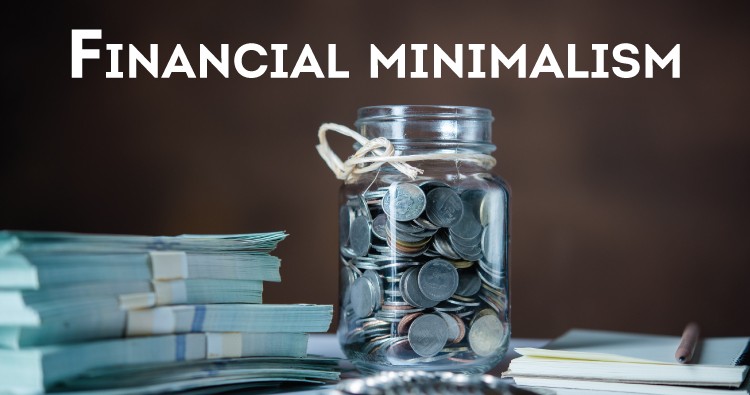
Financial minimalism shares the same basic principles as other types of minimalism. It’s about reducing unnecessary expenses and simplifying your finances. Over time we accumulate more monetary commitments, the goal is to reduce the number of financial obligations we have.
Just like the minimalist approach to decluttering can bring a sense of peace and contentment, financial minimalism can bring about greater financial stability and security.
Create a budget
Start by creating a budget, which is a plan that helps you manage your money. It shows you how much money you bring in and how much you spend and save each month which can help you avoid problems like overspending and debt. The budget should include your total monthly income and all your monthly expenses.
Eliminate unnecessary expenses
Once your budget is in place you will be able to clearly see where your money is being spent. Review your spending and eliminate what is not necessary. These expenses will be different for every person but some common areas to review are dining out and trips to the coffee shop, magazine and newspaper subscriptions, costly cable bills and streaming services, gym memberships, expensive cell phone plans, and entertainment. Lower the cost or eliminate what you can.
Carefully consider your borrowing habits and work toward paying off loans and credit card debt. Find a debt reduction approach that works for you and stick with it until you are debt free. Focus on the debt with the highest interest rate first (the debt avalanche) or the smallest balance (debt snowball) whichever technique motivates you more.
Live below your means
When you spend less money than you earn each month, you are living below your means. A Pew Research study showed that less than 46% of respondents surveyed reported making more than they spend. https://www.pewtrusts.org/en/research-and-analysis/issue-briefs/2017/03/how-income-volatility-interacts-with-american-families-financial-security
Spending less than you earn will put you on a path to financial success. Credit cards are useful, but if you don’t use credit correctly it can lead to debt. Think of your credit card as a tool, a way to earn money in the form of cash back and reward points and as a way to establish good credit. A credit card should not be used to purchase items you cannot afford to pay for. Ideally you do not want to carry a balance from one month to the next. Your balance should be paid in full by the due date.
Another way people get into trouble is by purchasing homes and vehicles and other big-ticket items by taking out a loan that is more than they can handle. Just because you are approved for a certain loan amount does not necessarily mean you can afford it. Banks and other lenders determine the loan amount based on your income, but they do not necessarily take into consideration the other debt you have. That is something you must think about when applying for a loan.
The same is true for leasing. You don’t want to rent a house or apartment that is more than you can comfortably afford to pay for each month after calculating in all of your other expenses. Living Below Your Means
Avoiding lifestyle inflation
Lifestyle inflation means that as you earn more you spend more. By maintaining the same lifestyle even as your income grows, you will avoid going into debt and have more money to save and invest. When your income increases act as if it didn’t and put the extra money into a savings or investment account.
Automate your finances
Setup online bill pay at your mortgage company, utility companies and credit card providers so that your bills are automatically paid on time eliminating late fees and interest payments.
Sell items you no longer need
As you declutter your physical space, sell items that you no longer need. The money you earn can be used to build an emergency fund or start a savings or investment account that you can continue to add to over time.
Borrow Items Instead of Buying
If you need to use something once or twice like a tool, a piece of sporting equipment, camping gear or formalwear consider borrowing the item from a friend or relative or check your local library, libraries lend more than just books, they lend tools, tech items, kitchen gadgets, formalwear and more. /2022/05/02/utilizing-your-public-library/
Invest & save
Don’t feel like you need to have a ton of money to start an investment or savings account. Banks and credit unions allow you to start a savings account with very little down and the big investment brokers like Charles Schwab and Fidelity have plans for everyone. Setup automatic transfers so that a portion of your salary is deposited into your accounts. Use the “pay yourself first” method by making savings and investing part of your budget. Treat contributions to these accounts like a monthly bill.
Embrace frugality
Being frugal doesn’t mean living with nothing, it just means you are careful with your money and look for less expensive options when making a purchase, this can mean buying scratch and dent appliances, shopping at thrift stores, using coupons and shopping sale items, doing DIY projects at home, and finding less expensive forms of entertainment.
Don’t feel like you need to keep up
Don’t succumb to the consumerist agenda. You don’t need the newest car or home or the newest cell phone. You are not competing with anyone or trying to keep up with others. Remember many people who appear to have the best of everything are drowning in debt.
